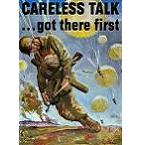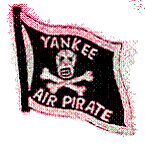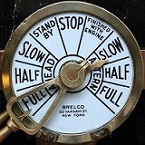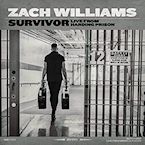Nikademus
Posts: 25684
Joined: 5/27/2000
From: Alien spacecraft
Status: offline

|
Have recently started The Burma Campaign: Disaster into Triumph 1942-45 by Frank McLynn.
Excellent book thus far. The author does an excellent job detailing the background of the campaign's origin and that of the broader conflict in the Pacific in similar style to Caputo's. I thought his commentary here was particularily refreshing: "Many Western histories begin their account of the origins of the Pacific War with a sudden, unexplained act of aggression when Japan invaded Manchuria in 1931, as if the militarists in Japan had appeared out of nowhere and for no reason; the triggers and precipitants, sadly were all too obvious, and not helped by an uncompromising and myopic Asian policy pursued by President Franklin Deleno Roosevelt after 1933."
The author is right. Few western histories take the time to fully map out the hows and whys of the Pacific conflict. Caputo was one of the few, as is Drea. Before anyone starts to think McLynn is a Japanese apologist, he does not shy away from mentioning the atrocities that the Japanese military initiated and that it forever stained the honor of the IJA during WWII as a result. Rather, like with the rise of Hitler and Nazi Germany, he links the rise of Japanese right wing nationalism and hardliner military dominance to events around the world and involving all participants and their actions....including the United States.
His analysis of Japanese military thought is on a par with Drea's analysis (aka, North vs South factions etc) though some may question his assertion that the US would have stayed out of the conflict (initially) had Japan not attacked the US and had aquienced to FDR on the China issue. Regardless it makes for good reading and careful thought.
Overall the author pulls no punches with anyone. He calls all sides on their fobiles as well as acomplishments. His descriptions of pre-war/immediate war Burma go a long way to to explaining in part the state of affairs there today. The book better explains why so many atrocities on all sides, particuarily by the Burmese themselves occured given the voltile dynamics in place...the issues, the angst and the outright anger. On the war itself, the book is valuable alone in being more detailed on the actions that occured before the Sittang bridge blowing which is where Louis Allen's pivitol work on Burma starts.
Allen's book is far more detailed, but Mclynn's focus on events as seen by and involving the four pivitol leaders he focuses on really helps the reader make better sense of one of the most complex campaigns of WWII. (With Allen, its easy to get lost in the details, which along with the dryness of the author's writing style is why i always tell people to read the book in small doses) Those leaders are Slim, Wingate, Stillwell and Mountbatten. I'd almost qualify Chiang as a fifth element as the author goes to good length in the beginning chapters to detail his involvement in Burma, his relationship to the Allies (FDR in particular) and of course Stillwell.
On an amusing note....Mclynn makes the same error in 2011 that Allen makes in his book of years past......calling Japanese fighters "Zeros" and not distinquishing them (actually Ki-43's) from the much more numerous Ki-27's. Other than this boo boo though.....i am thoroughly enjoying the book. He is especially skilled in his biographies of the before mentioned leaders.
anyway........long and short. This is the best book i've read in a while this year. As a Kindle download of course its a bargain vs. the Hardcover price.
_____________________________
|
 Printable Version
Printable Version










 . Hopefully this will prove a better read; if not I think I will give up on the Solomons completely
. Hopefully this will prove a better read; if not I think I will give up on the Solomons completely 
 - a brief skim through of The Solomons Campaigns fills me with high hopes for this book.
- a brief skim through of The Solomons Campaigns fills me with high hopes for this book.




 . Makes me wonder what else will be edited out. As I say, disappointing
. Makes me wonder what else will be edited out. As I say, disappointing 








 New Messages
New Messages No New Messages
No New Messages Hot Topic w/ New Messages
Hot Topic w/ New Messages Hot Topic w/o New Messages
Hot Topic w/o New Messages Locked w/ New Messages
Locked w/ New Messages Locked w/o New Messages
Locked w/o New Messages Post New Thread
Post New Thread